Starting a WordPress website is not inherently difficult. However, there is a lot about WordPress that many website owners will not understand until they have been using it for some time. At least that’s how it worked for me anyway.
When you set out to build a website on the world’s most popular, flexible, and easy-to-use content management system (CMS), you have to start with an idea. From there come things such as:
- Domain Name. Purchase your website’s domain name (aka the website address).
- Hosting Provider. Choose a hosting provider to host your website’s files.
- WordPress Installation. Install WordPress onto your website. For example, SiteGround makes installing WordPress super simple.
In short, this is all it takes to lay the foundation of a good website. However, as a WordPress website owner, you will need to supplement your site’s basic overall design with a WordPress theme, and implement added functionality with WordPress plugins.
And sometimes this means utilizing the free themes and plugins available to WordPress users
But are free WordPress plugins worth using?
Today I am going to give you a brief overview of what a WordPress plugin is, where to find them for your website, and how to tell if a free plugin is worth using.
What is a WordPress Plugin?
According to WordPress Codex, plugins offer websites that are normally lightweight and flexible enhanced custom functionality to meet a website owner’s individual needs.
WordPress plugins are pieces of software with custom functions that enable a new feature on your website or make your website perform a specific function (such as add a contact form or block spam).
WordPress plugins are written in PHP programming language and integrate seamlessly into the core of WordPress. What’s more, they make it easy for website owners of all levels to add features to their websites without having to understand the complex nature of code.
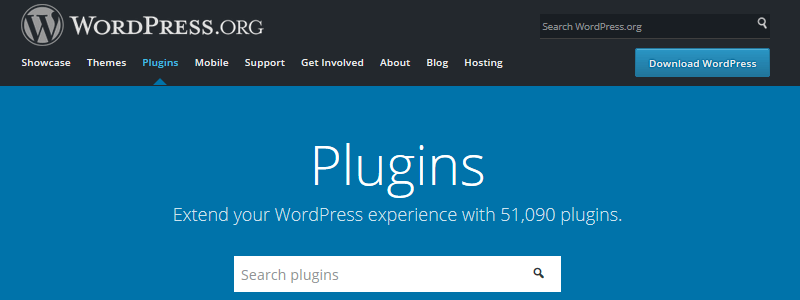
There are literally thousands of WordPress plugins available in the official WordPress Repository. In fact, as of now, there are 51,090 free WordPress plugins to choose from. Now of course, you will never need that many plugins on your website.
This is because many plugins offer very similar features. That’s why you have to do your research and pick the best one for your specific needs.
Where to Find WordPress Plugins
Besides the WordPress Repository, many third-party marketplaces offer free and premium plugins to WordPress users. Therefore, wading through the thousands of options and making a decision is tough.
The good news is, however, there are so many high-quality free WordPress plugins to pick from that investing in a premium plugin is not always the only option. In fact, some free plugins out there far surpass premium competitors allowing you to spend money elsewhere.
But where is the best place to find free WordPress plugins?
Well, the answer to that is not an easy one. While the WordPress Repository has plenty of options for you, there are also some incredible third-party companies and developers that provide premium quality WordPress plugins to website owners, free of charge.
That’s why, rather than list every single place you can find a free WordPress plugin, I am going to share with you some tips for knowing when to go ahead and install a free WordPress plugin on your website, and when to be cautious – no matter where it comes from.
Tips for Choosing a Free WordPress Plugin
1. If It Comes From the Repository.. It’s Good
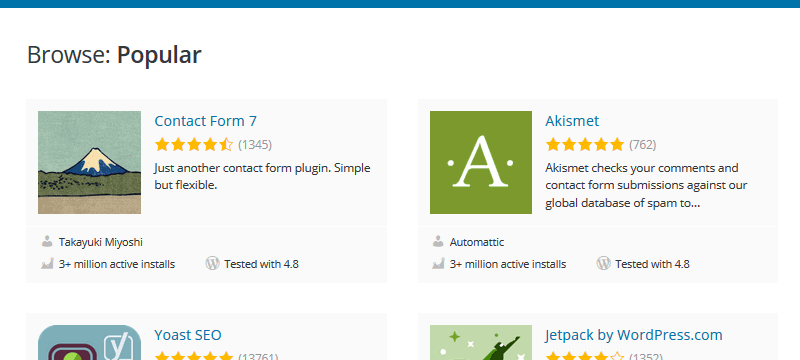
Okay, I know I already said there are some great third-party companies and plugin developers out there that provide high-quality free plugins to website owners. And, I still stand by that.
However, if you really want to make sure your free plugin is good, get it from the official WordPress Repository. The plugin directory at WordPress.org does not allow just any free WordPress plugin to be listed there.
In fact, they have a very strict screening process in place designed to protect website owners from bloated, poorly coded, and vulnerable plugins wreaking havoc on websites.
2. Ensure Code Quality

This can be challenging if you decide to use a plugin that is from a source other than the WordPress plugin directory. This is because anyone can claim their plugin is “cleanly coded”, “free of bloat”, and “reliable to use”.
But the truth is, there are tons of free plugins out there that are poorly coded by inexperienced plugin developers. Worse yet, there are some out there that are intended to expose your website to hackers and malware, putting your website at risk.
One of the best ways to ensure your free plugin is safe to use is to do some research on the plugin developer. If the developer has a solid presence in the WordPress community, runs a well-known WordPress website, has years of experience in plugin development, and has social proof from existing users, then it’s probably safe to use.
3. Check the Stats
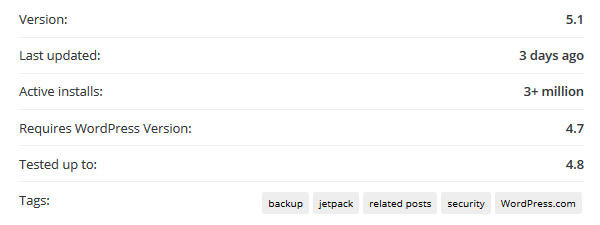
There are several statistics you can check when it comes to choosing a free WordPress plugin for your website:
- Last Updated. Make sure the plugin has been updated within the past 6 months or so. Outdated plugins may have bugs in them that can make your site vulnerable. Additionally, an update to your WordPress version may not work well with an outdated plugin.
- Active Installs. The more people actively using a plugin, the less likely it is to cause you issues. For example,
Yoast has over 3 million installs. - WordPress Version. Just like choosing an up-to-date plugin, it is important the plugin work well with the most updated version of WordPress.
- Ratings. Social proof can (and possibly should) influence your plugin choices.
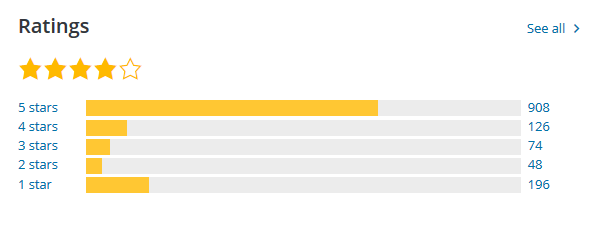
4. Look for Support
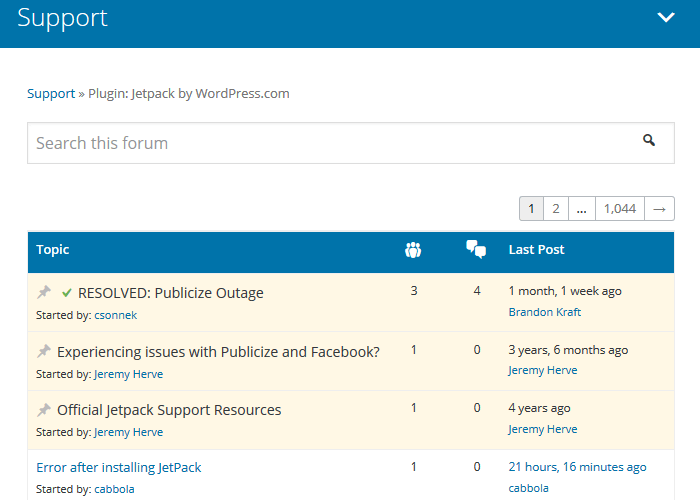
One thing that free plugins do not always come with is support. After all, if you are not paying for a plugin, there is no obligation on the developer’s part to provide any kind of support. However, this does not mean that support is unnecessary. If you have issues with your plugin, it’s good to know someone out there will help.
Any high-quality plugin will have some sort of support in place. Typically, free plugins have a support forum. However, there are plugin developers that will help you directly. Moreover, some third-party companies have support teams to help you, even with their free plugins.
5. Test Site Speed

In order to ensure that the free plugin you are using on your website is truly lightweight, it is crucial you measure you site’s speed and performance both before and after and you install it. Here are some great ways to do just that:
- Use an online tool like Pingdom or GTmetrix
- Use the Query Monitor plugin
- Test a new plugin installation in a testing environment
Final Thoughts
In the end, there is no reason why you shouldn’t use free plugins on your WordPress website. So many reliable ones out there provide enough features that you shouldn’t have to spend your hard-earned cash on a premium plugin “just because”.
That said, there are definitely precautions you should take when installing a free plugin on your website. Especially if it does not come from the trustworthy WordPress Repository. And even then, outdated, non-supported plugins should be used with caution.
In all, if you heed my advice and do your research, you will find yourself with an arsenal of high-quality, free WordPress plugins that meet your every need.
What is your experience with using free WordPress plugins? Have I left out a crucial tip for deciding whether a free plugin is worth using or not? I would love to hear all about it in the comments below!
